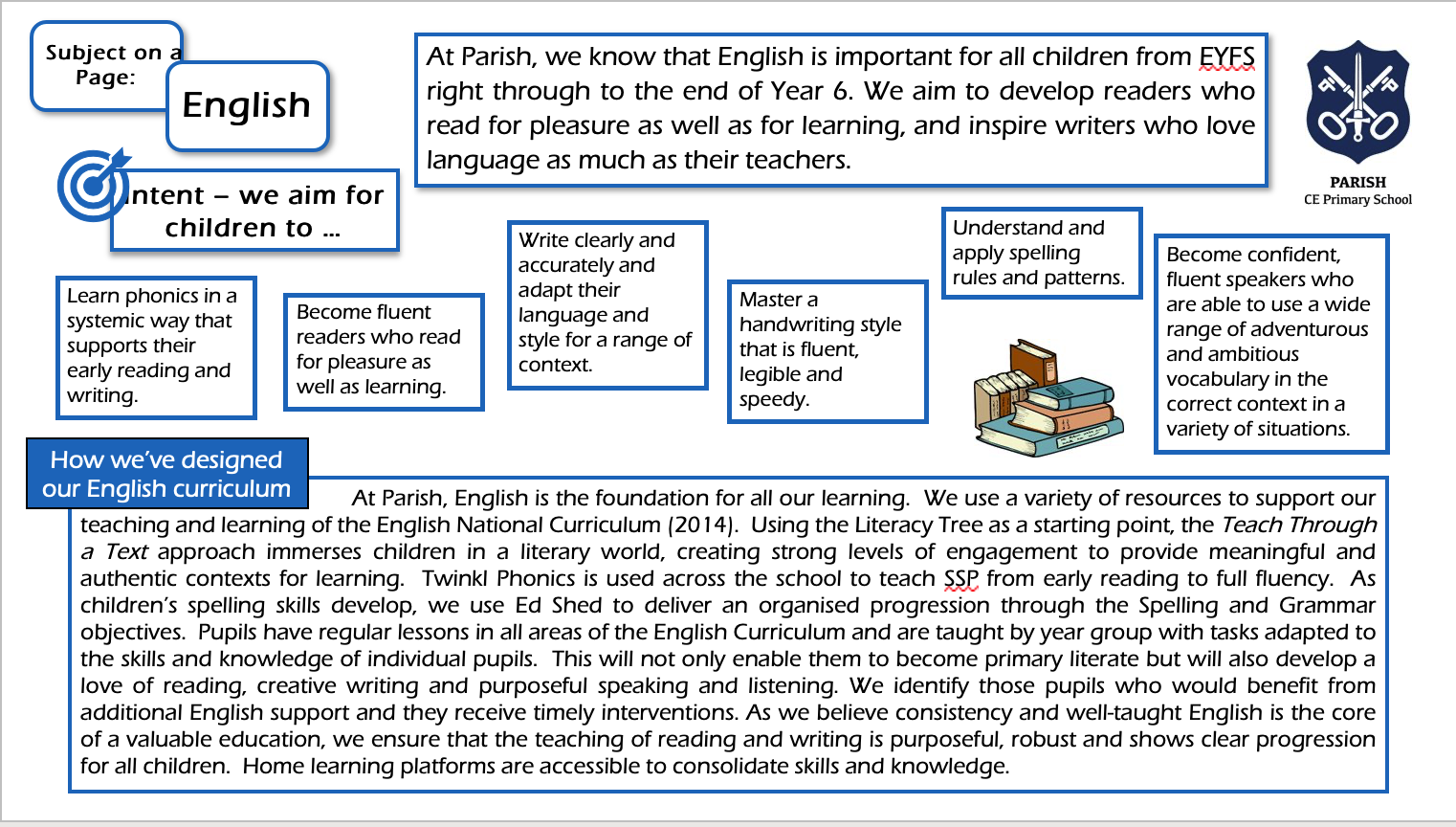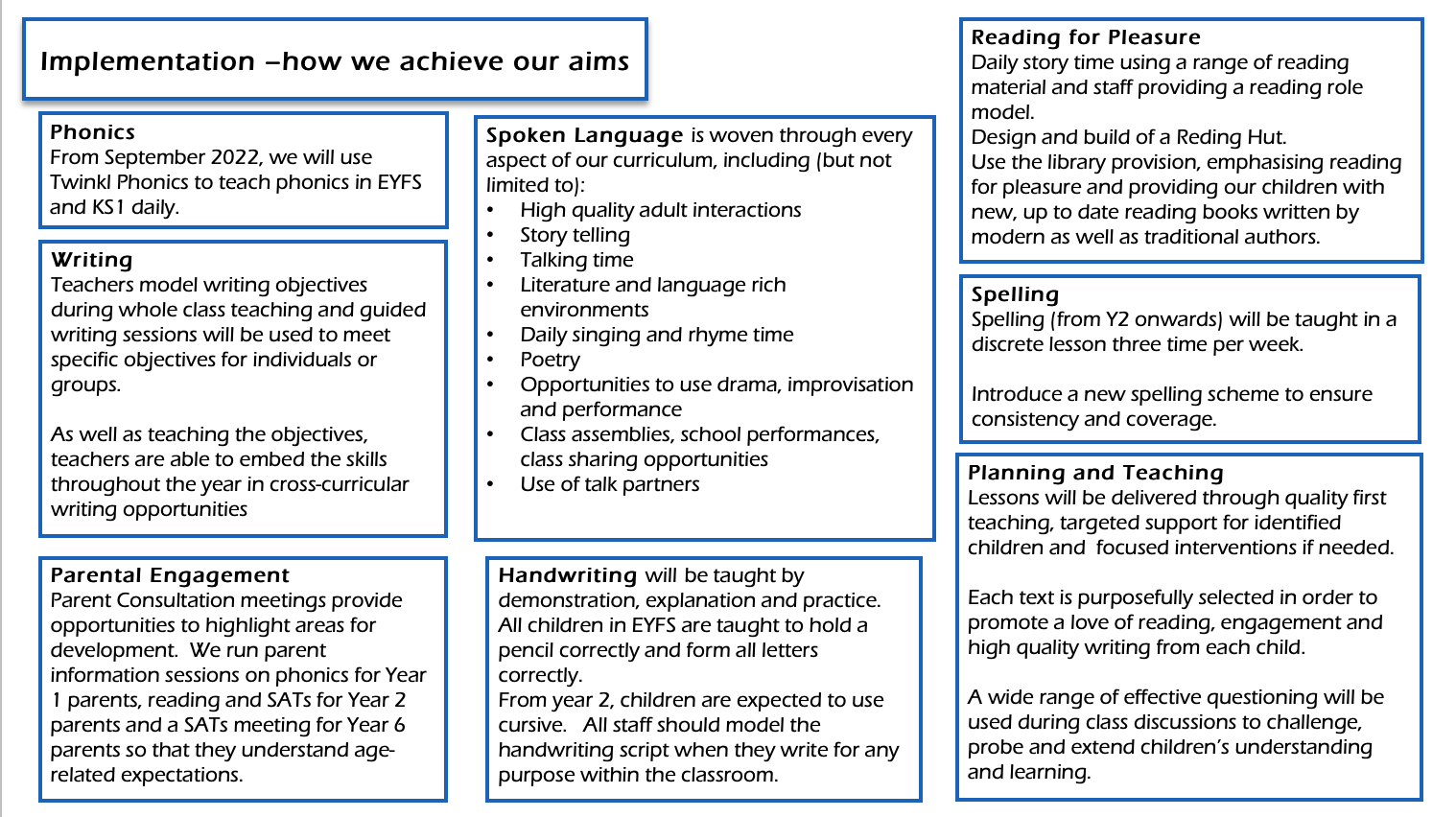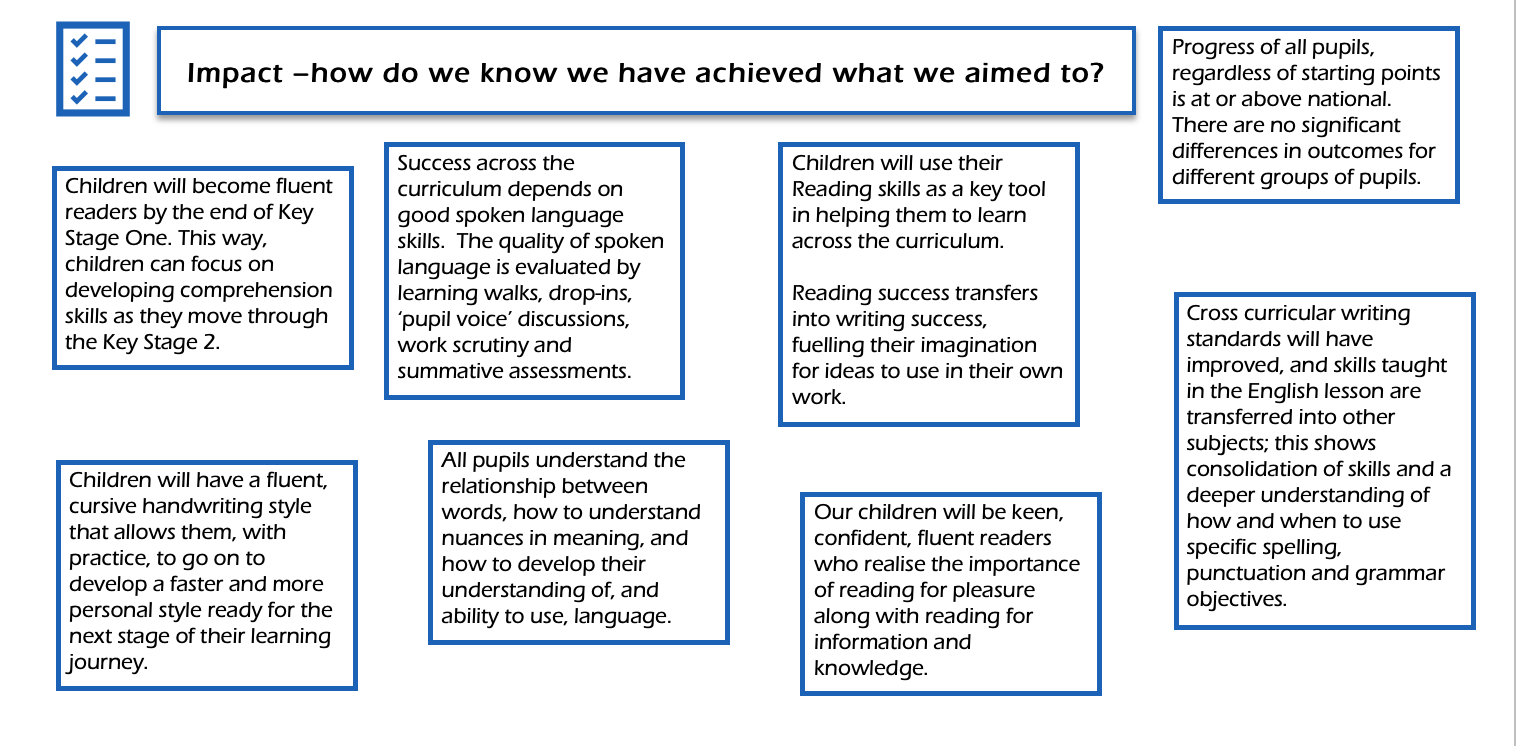English



Writing
We aim to develop the children’s ability to produce well structured, detailed writing in which the meaning is made clear and which engages the interest of the reader. Attention is paid throughout the school to the formal structures of English, grammatical detail, punctuation and spelling. Our approach to teaching writing covers the ‘transcription’ and ‘composition’ requirements of The National Curriculum (2014)
These strategies are embedded into The Literacy Tree Planning Documents, whereby a range of different context writing tasks are based on a text. This allows children to have the opportunity to ‘explore high quality texts in depth, enhancing reading comprehension and providing meaningful contexts and purposes for writing’. We also recognize the importance in developing spoken language, therefore opportunities to develop spoken language skills are planned for within English lessons and across the wider curriculum. These include include: talk partners, storytelling, roleplay and debating within lesson. The teaching of this programme is flexible and class teachers apply their own creativity to cover the objectives stated in the National Curriculum.
Teachers model writing composition skills and the use of phonics and spelling strategies in shared writing sessions. Children have opportunities to write at length in regular ‘Big Write’ extended independent writing sessions; applying their taught skills to an unsupported piece of writing.
Discrete handwriting sessions are taught at least once a week, to help children develop fluent, clear and legible joined up writing (see Handwriting Policy for further details).
Grammar and Spelling
Word Aware
At Parish, we have taken the principles of explicit vocabulary teaching from the Word Aware scheme written by Stephen Parsons and Anna Branagan. A wide body of evidence shows that vocabulary learning is critical for pupils being able to move on to the next stages in their learning journey. Therefore, we are making words a priority in our teaching to meet the needs of all pupils. By maintaining a sustained effort in exposing children to key vocabulary, we can support pupils in making links across the curriculum and also between their oral and written language. We do this through a process of "selecting" the key words needed, followed by explicit "teaching" of those words. Learning is then "activated" by the pupils in their own work and regularly "reviewed" (STAR). By analysing word components (prefixes, suffixes, root words), we help pupils identify patterns in spellings and meanings so they can use this to build their vocabulary when faced with unfamiliar words.
Whilst there might be one method for learning words that works for one child, it may not be the approach that works for another, so a mixture of strategies is used, such as word games, anagrams, mind-mapping, etymology (where words come from) etc to support memory recall. What is also important is to work with the vocabulary a child has already and to gradually build up those links to help them make new connections in their understanding. Repeat, repeat, repeat. It cannot be underestimated how powerful going over vocabulary children have already been exposed to can help their recall. Once is never enough! By also giving pupils a context for vocabulary they are learning, this also helps them to remember and apply the words they need.
The teaching of Grammar and Spelling is in line with the requirements of The National Curriculum (2014). Grammar is timetabled to be taught discreetly for at least once a week. However, grammar skills are also embedded within Literacy lessons where appropriate.
In Early Years Foundation Stage and Year 1, our phonics teaching makes strong links between blending for reading, segmenting for spelling and handwriting. We encourage all of our pupils to apply their phonic knowledge when spelling.
From Year 2 onwards, children are taught the age related spelling content using a published scheme ‘No- Nonsense Spelling’. This scheme of work provides us with a manageable tool for meeting the requirements of the 2014 National Curriculum, has a clear progression through blocks of teaching units across the year and supports our teachers with the teaching of spelling. (See Spelling Policy for further detail)
Our focus on teaching spelling embraces the knowledge of spelling conventions, patterns and rules. We also promote the learning of spellings, through the use of multi-sensory strategies, including combining the teaching of spelling and handwriting. Our teaching of spelling includes common exception words, high frequency words and topic words.
